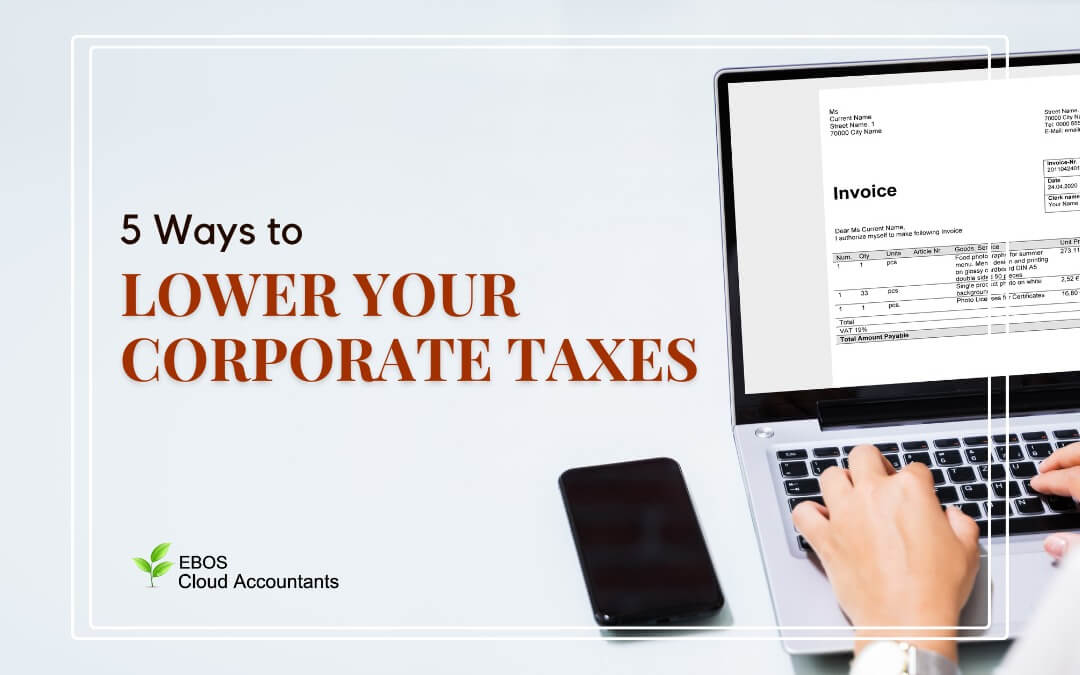Businesses have a lot to consider regarding corporation taxes. They aim to reduce their tax liability as much as feasible. On the other hand, they also need to be mindful of how corporate taxes may impact their business operations.
In this article, we discuss how Lion City, one of the best places in the world to conduct business, and how its corporate taxes are encouraging companies to do so.
Does Singapore Have Low Corporate Taxes?
Comparing Singapore’s corporation tax rate to that of places like Puerto Rico (37.5%) and Brazil (34%), these other nations have higher rates. In Singapore, the corporate tax rate is 17%.
How Do I Calculate Corporate Taxes in Singapore?
In Singapore, calculating corporation taxes is not too difficult. The fundamental formula is:
Income Taxable x Corporate Tax Rate equals Corporate Tax
The amount of money that is subject to company tax is known as the taxable income, and the corporate tax rate refers to the percentage of tax that is applied to this income. A few situations constitute an exception to this rule. But, this method will generally give you a good sense of the amount of corporate tax you will have to pay.
How Do I Reduce Corporate Taxes in Singapore Legally?
Despite Singapore’s low corporate tax rate, some businesses might look for additional ways to lower their tax responsibilities. With the help of these measures, it is also possible to decrease your corporation tax return legally:
1. Tax Exemption Schemes and Incentives
You can take advantage of a Singapore incentive or appropriate corporate income tax exemption plan to further lower your business taxes.
By utilizing deductions and exclusions, corporations can typically lower their tax obligations. The amount of your taxable income is reduced via deductions, although certain types of income are entirely exempt from taxation.
2. Exemptions On Foreign-Sourced Income for Tax Relief
Foreign-sourced income is defined as income earned outside of Singapore and is often taxable. The practice of taxing foreign income twice, once in the foreign jurisdiction and once in Singapore, is known as double taxation.
Companies that are Singapore tax residents can take use of the Avoidance of Double Tax Agreement (DTA) scheme.
If the income falls into one of these three categories, Singapore resident corporations can also receive tax exemption on foreign-sourced income repatriated into the designated country:
- Foreign-sourced dividend
- Foreign-sourced service income
- Foreign branch profits
3. Tax Exemption for Startups
The Tax Exemption Scheme for New Start-Up Companies was initiated in the Year of Assessment (YA) 2005. It aims to provide support to entrepreneurs and develop local businesses.
It was last revised in YA 2020, with the current tax exemptions for eligible firms for their first 3 consecutive YAs being:
- A 75% exemption on the first S$100,000 of regular chargeable income, and
- An additional 50% exemption on the next S$100,000 of regular chargeable income
From the 4th YA onwards, firms can enjoy partial tax exemption.
All new startups can benefit from this exemption scheme, with these exceptions:
- Businesses with the principal activity of investment holding
- Firms that take on property development for either sale or investment, or both
Companies must also fulfill these requirements:
- Be incorporated in Singapore
- Be a Singapore tax resident for that YA
- Have total share capital managed by a maximum of 20 shareholders throughout the basis period for that YA, and
-
- The shareholders must be individuals, or
- At least 1 is an individual holding a minimum of 10% of the ordinary shares issued
4. Partial Tax Exemption
Businesses can receive the Partial Tax Exemption for Companies (PTE) starting in YA 2020 if they are not qualified for the tax exemption for new companies.
The PTE provides each YA with a maximum exemption of S$152,500.
5. Opening a New Startup With Separate Business Functions
The Tax Exemption Program for New Start-Up Businesses allows new businesses to lower their tax obligations. Instead of combining all of your business’s operations into one organization, you might divide them up among other companies. Keep in mind that you should only use this technique for business and commercial purposes and not for personal gain.
Wrap up:
It’s not too late to minimize your small business tax bill with some carefully placed purchases, knowledge about tax exemption policies, and managing the way you deduct expenses for your business. Talk with your trusted tax professional to determine the best course forward for your company.







